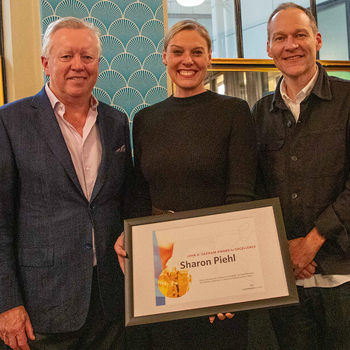Successful Offshore Consulting Requires Much More Than Just Subject Expertise
Who remembers the saying: “The world is getting smaller by the day?”
The metaphorical reference to the shrinking earth was often used by geography teachers – 40 years ago in my case – to illustrate how invention and innovation have dramatically narrowed the distance between people across the globe.
Then, we marvelled at how, thanks to the aeroplane, one could wake up in Johannesburg, attend a meeting on the other side of the world and be back home in time to spend the night in his or her own bed. Now, things have advanced so much that we take for granted the ability to have intercontinental meetings without actually leaving the office – or our homes.
But, all the sophistication in communication is still no match for the face-to-face meeting. It can’t replace the magic that comes with being in the same room with people, shaking their hands, feeling their frustrations and really getting to know what makes them tick.
So, consulting to off-shore clients still entails a fair amount of travel. My colleagues and I had the pleasure of doing just that last month. The four of us flew from Johannesburg to Antananarivo, Madagascar, to conduct media training, crisis communication training, writing workshops and a plethora of digital training for a new client.
Our excitement at having to work offshore was somehow tempered by worries at the challenges posed by differences of language, culture, among other things. Fortunately, we knew of the trip well in advance and did what this industry is known for doing quite well – that is to prepare. We spent two months devouring information about Madagascar.
Well, a workshop is a workshop is a workshop. The rules remain the same – great presentations, good logistics, the right tools and right people for each of the tasks. Such positive thinking is invaluable in psyching yourself up, giving you the confidence that you are equal to the challenge. But, it was instructive in our case to remember that Madagascar is not South Africa.
Although only three hours away – one hour farther than Cape Town from Johannesburg – Madagascar and South Africa are worlds apart, culturally and linguistically. They speak none of our 11 languages official languages; but Malagasy, French and a spattering of English.
So, there’s the real possibility you might struggle to connect with your audience. Translation and working through an interpreter become invaluable, which naturally slows things down. You also have to speak much more slowly than usual. So, patience is of the essence.
The trip taught me that besides preparations, you need two additional arrows in your quiver – humility and an open mind. Humility is invaluable in informing your attitude. In our case, it was important that we not approach the job-at-hand as some know-it-all’s who had come to Madagascar to preach – just like missionaries of old.
Rather, we had come to share our expertise; add to what they already knew and broaden one another’s perspective. This attitude is quite important when navigating the treacherous waters of nationalism, especially when the consultant works in a less developed country.
So, besides competency, you should expect to be put under additional scrutiny for any suspicions of national superiority, especially when dealing with former colonies.
Having an open mind makes the learning process a two-way street. In our case, we came back with invaluable knowledge about the client’s business and the country in which it operates than we could have ever bargained for. For that, I think we are in a position to better consult to the client.
Find Out More
-
Digital Insights Bulletin - October 2024
October 31, 2024
-
Sharon Piehl Wins 32nd Annual John D. Graham Award for Excellence
October 25, 2024
-
Digital Insights Bulletin - September 2024
September 30, 2024


